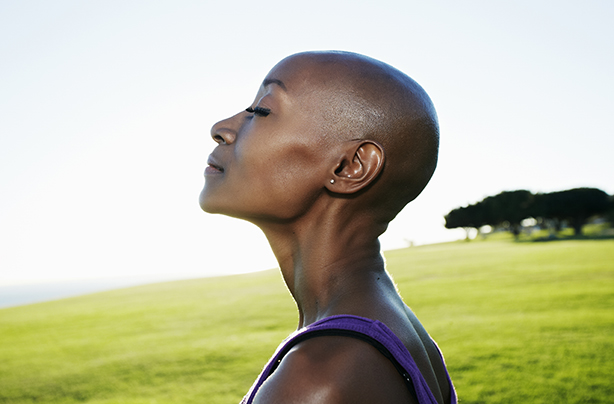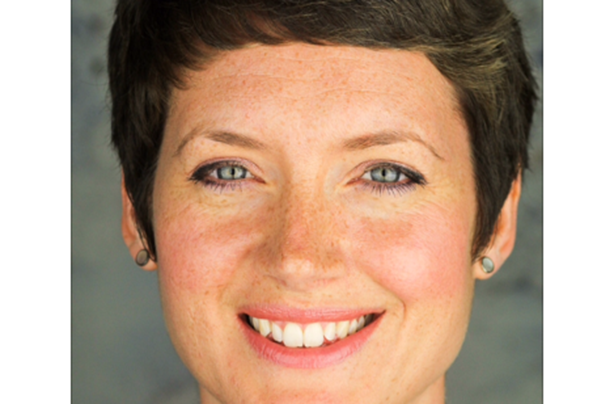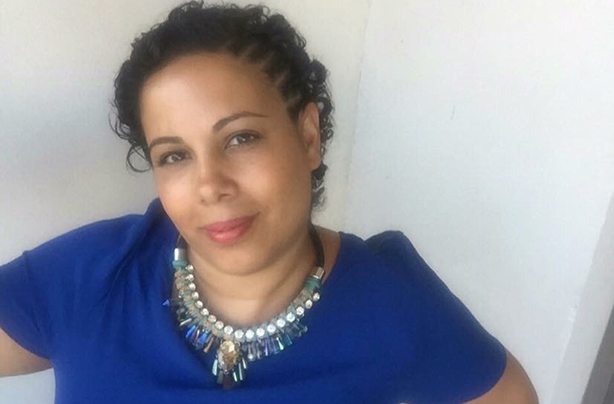'If I wore the headscarf, I'd have cancer' Two women open up about the 'horror' of hair loss during chemotherapy
Our hair is a huge part of our identities – and for some women, it's the worst part of the cancer experience

Breast cancer is a life-changing illness for countless reasons, but for many, the most difficult part is the most visible of all.
For some women, hair loss during chemotherapy strips away a significant part of their identities and can often be the marker between feeling 'normal' and 'sick.'
When TV presenter Victoria Derbyshire admitted in an intimate home video that losing her hair was something she was finding especially hard, women around the country who had perhaps felt guilty for having the same feelings breathed a collective sigh of relief.
Here are the stories of two women who felt that losing their hair was the worst part of their experience with breast cancer, and, with the support of their families, how they regained parts of their identity after treatment.
Hayley's story

My children had always adored my hair. When my son, Joe, was younger and got upset, he would bury himself in it as a comforter, smoothing my long hair over his face in same way a child might bury themselves in blanket or a teddy bear.
My family's sadness and anxiety about my illness was too much for me to bear, and so I didn't want to add to it by articulating my devastation at losing my hair – I kept it to myself to protect myself. For the first few weeks, I didn't let anyone (including my husband and children) see what I looked like; I couldn't look at myself in the mirror without crying and I hated that they would have this image of me. In the end, my daughter Lois, who was only four at the time, was just so desperately inquisitive about what I looked like that I showed her when we were trying on my wigs. She ran straight downstairs to my husband and son, to boast that she'd 'seen mummy's bald head!'
I do love the way that children see the world sometimes – my daughter certainly keeps it light. It was her who made the 'Telling My Children That I'm Going To Lose My Hair' conversation into such a funny moment. I'd been building up to tell them, trying to find the right moment, when she turned to me whilst snuggling on the sofa and said 'I do love your hair, mummy.' I replied, 'Actually, I'm going to take some medicine for my poorly booby and it will make my hair fall out!'
GoodtoKnow Newsletter
Parenting advice, hot topics, best buys and family finance tips delivered straight to your inbox.
She looked at me for a moment, then burst out laughing, shouting, 'Daddy, Joe! Mummy is going to be a baldy!' We all just laughed so much – what could have been terrible moment of great weight was turned into a joke, which we all joined in with.
I had hoped that I wouldn't lose it, of course. My oncologist said that I would have lost all my hair by my second treatment, so when it didn't I started to fool myself that it wouldn't happen to me.
I started noticing that my hair was falling out over the New Year, and it actually started with pubic hair! It was gradual at first, with a few hairs on my shoulders, but soon I would run my fingers through my hair and pull out lots of strands. In the third week after chemo it was thinning dramatically – it felt as though the hair was no longer rooted in my scalp but just sitting on top of it, waiting to be pulled off.
I shaved my head 15 days after my first treatment, and I asked my friend Harriet to do it for me because I knew that she wouldn't make it emotional or sad – instead, we would keep it casual and try and find the lighter side of the situation. But when I looked in the mirror, it was simply a guttural feeling of horror – chemotherapy drugs played horrible tricks on my mind, where I felt I had 'lost myself', and to look at my reflection only confirmed that I was no longer the Hayley I had always been. I'd put on a hat straight away to hide it, but when my husband and son came home, Joe was keen to see my head. My husband welled up – it was the only point that evening when I also became tearful. Hair loss is such a visible marker of having cancer and until that point, I'd been doing my most convincing 'this isn't happening to us' act. Once the hair was gone, I couldn't pretend any more.
But my husband, Jason, is the most wonderful man. He never made me feel as if he saw me any differently – he still fancied me, told me I was beautiful, and viewed me in the same way he always had done. He's always given me huge amounts of self-confidence and this situation has been no different. And the wig I ended up buying and wearing most days matched the bob I'd had my hair cut into when I was diagnosed and sometimes even fooled healthcare professionals – I did really like it, I would style it with a clip so that the long fringe didn't fall into my eyes, and it made it look very realistic.
But my altered sense of self because of my illness can't be 'made good' simply by my hair growing back. Cancer has changed my entire life; my place in the world. Hair doesn't touch the sides of moving anywhere near to who I was before.
Michelle's story

I really don't think that people realise the gravity of how hair loss can impact your personality, and impact your confidence. Like Victoria Derbyshire, I did find it the worst part: even when your hair's growing back, and it's really short – but you've actually got hair, so you're brave enough to venture out – you do still feel self-conscious. I still feel self-conscious now with mine because even though it has grown, it's not how it was before. I still feel like I have to explain to people, 'I lost it, so that's why it's this short.'
I have become a lot more comfortable with it now. It's lovely hair now, it's just not quite how I like it. At first when it started to grown back it came through white, and so I had to shave it off again! My niece said I looked like a 'fluffy newborn chicken,' and I thought, 'Right – that's coming off!' We have had to try and have a laugh about it. When I shaved it off, I had my three children here, my mum, and my best friend lives next door with her children. She's actually a dog groomer, and she came round here with a pair of clippers and we all sat in the back garden, had a giggle over it and filmed it. I had a cry the next day, when the reality kicked in, but we tried to turn it into a big joke.
With my best friends, my mum and my husband, I would tell them honestly how I felt. Sometimes it would make me cry – when my eyebrows and lashes came out, I think out of the whole experience, that was the worst for me. My confidence really was at rock bottom. I used to keep saying to myself, you've had your surgery, and the chemo is to make you better – I've got my life. And that's the most important thing. But there's nothing that can prepare you for how you're going to feel losing your hair. When it actually happens, it's a whole different story.
Now it has started to grow back, it's the same colour as before with the same curls, but it's at an awkward length and there's not much I can do with it. It's still not what I identify with. I've had long hair for such a long time, and if I'm out with the girls and they've all had their blow-dries done like I used to, it still affects my confidence.
One night will always stand out to me: going to a nightclub with my friends for my birthday – last April, so my hair had been growing back from mid January and was still so short. But I didn't want to not go out – I was young, I didn't want to stop everything in life that I enjoyed doing. Once I'd had a few wines, of course, I forgot to feel paranoid, but at the start of the night I had serious hair envy. I remember looking in the mirror in the toilets, doing my lipstick. I looked at my hair and I said to my friend Kelly, 'Oh my god, I just hate it.' She told me I looked fab, but I knew she was just saying that to up my confidence. That's the most self-conscious I've felt, going out on the first big night out with the girls.
I wore a lot of make up, though, because you do try to enhance your features to draw attention away from the fact that you've got no hair. Never headscarves though, just hats. I felt like if I wore the headscarf, I'd have cancer. And I never wore my wig in the house – only if we went out for a meal, or a wedding or something. It used to make me really hot and uncomfortable – I didn't enjoy the wig experience at all.
The majority of time, it was just hats, which I'd buy from River Island. It was a nice wig, but because I knew it was a wig I did feel self-conscious. I asked my youngest, 'can you tell this is a wig?' And of course, she'd say, 'Yes!' So it made me even more paranoid. She was a bit too honest, I think!
I'm relieved it's started growing again, and I do like it. I just can't wait for the day when it is longer. I've adapted, but I can't wait for it to grow a bit more... which it will, because if there's one thing I've been told enough times it's that 'hair grows'...'.
If you or someone you know has been affected by any of the subjects discussed and would like support or advice, visit breastcancercare.org.uk to use their Ask Our Nurses service, or call the Breast Cancer Care helpline on 0808 800 6000.
Trusted, informative, and empathetic – GoodToKnow is the ultimate online destination for parents. At GoodtoKnow, our mission is 'simple': we're trying to make sense of parenthood. On the site, you'll find everything you need for a happy, healthy family life. Our huge archive of content includes more than 18,000 articles and 1,500 how-to videos. These include expert-backed advice features on parenting, dealing with relationship changes after having a baby, self-care for mums and managing your family finances. We also feature tried-and-tested product reviews and buying recommendations for every stage of family life - from prams and Moses baskets to birthday gifts and top toys.